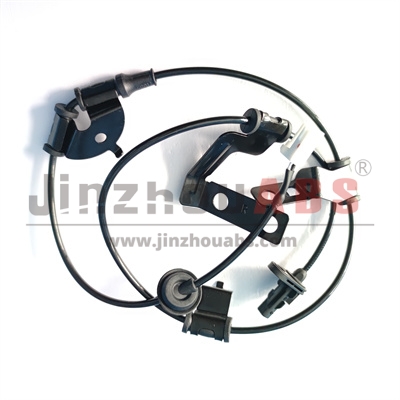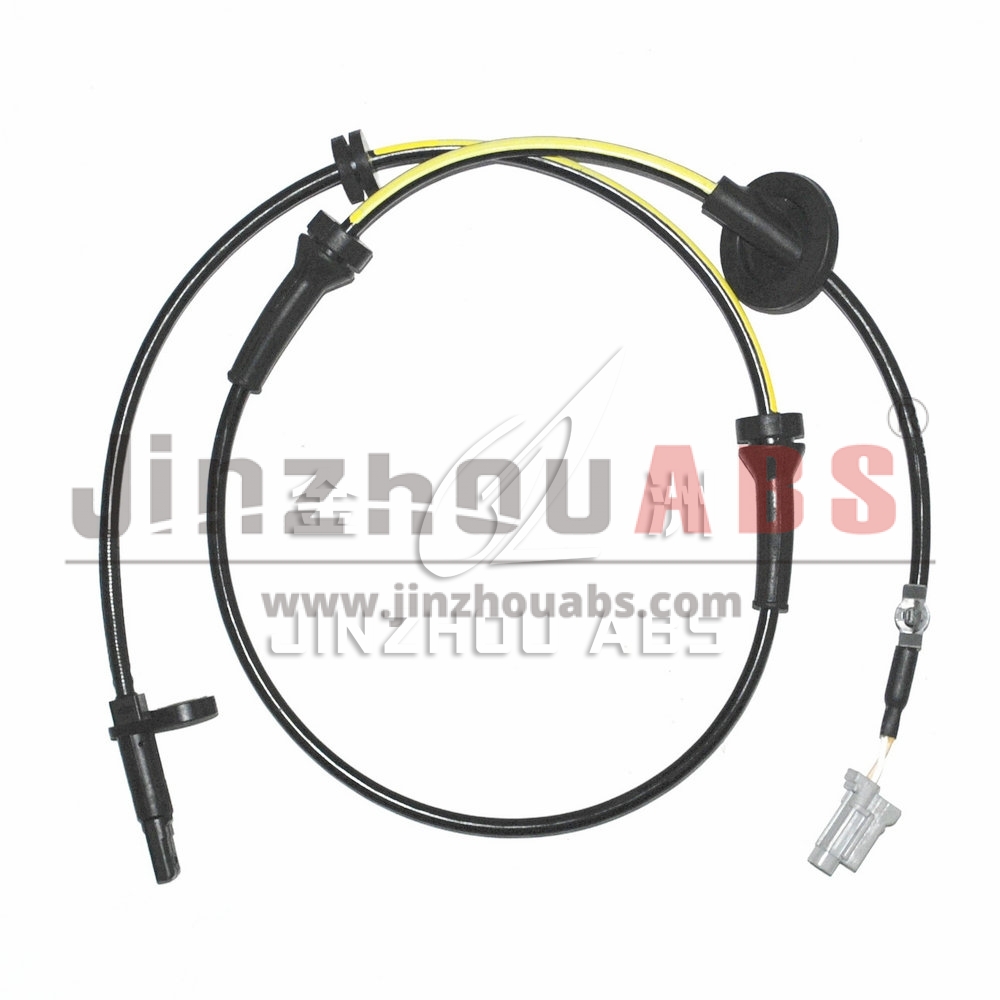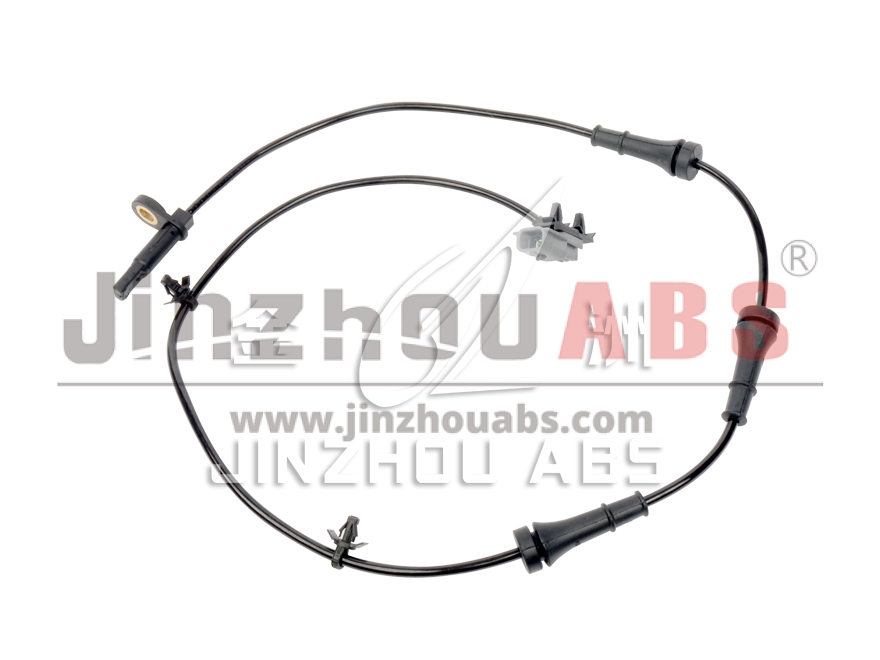Safe Driving: Exploring the Mysteries of ABS Sensors
As technology continues to advance, safety features in the automotive industry have improved significantly, including the implementation of anti-lock braking system (ABS) sensors. These sensors play a vital role in preventing accidents by ensuring that the wheels do not lock up during sudden braking, allowing the driver to maintain control of the vehicle.
In this blog, we’ll explore the mysteries of ABS sensors, how they work, and how important they are to safe driving. Plus, we’ll step into the world of Ruian Jinzhou Auto Parts Co., Ltd. to explore the intricacies of ABS sensors and our journey as an industry leader to continually push the boundaries of innovation.
What is ABS?
ABS stands for “anti-lock braking system.” It is a safety feature in vehicles designed to help the driver maintain steering control during emergency braking situations by preventing the wheels from locking. When the driver applies strong braking pressure, especially on slippery roads, ABS rapidly pulses the brakes on and off, allowing the wheels to continue spinning and maintaining traction with the road.
This pulsing action prevents skidding and allows the driver to maintain control of the vehicle when parking. ABS is now standard on most modern vehicles and significantly improves safety by reducing the risk of accidents caused by slipping during braking. To take full advantage of this safety benefit, drivers must learn how to properly operate the anti-lock braking system.
How Does ABS Work?
ABS utilizes sensors to monitor each wheel’s rotational speed. When a wheel is on the verge of locking up, indicating that the vehicle is approaching the threshold of skidding, the ABS intervenes by modulating brake pressure to that wheel. This prevents it from locking up while allowing the driver to maintain steering control.
The Dos and Don’ts of Anti-Lock Brakes
Anti-lock brakes (ABS) are an important safety feature in modern vehicles. Here are some dos and don’ts to keep in mind when driving with ABS:
Dos:
In the event of an emergency stop, please ensure to apply the brake pedal firmly and steadily. The Anti-lock Braking System (ABS) is engineered to enable you to maintain steering control while engaging in emergency braking. Therefore, it is important not to pump the brakes during this process.
Keep pressure on the brake pedal until the vehicle stops completely. Although the Anti-lock Braking System (ABS) prevents wheel lock, it’s crucial to ensure a full stop.
Monitor your ABS warning light regularly. If it stays on, have a qualified mechanic inspect your ABS system.
Adopting safe driving practices, such as maintaining a proper following distance, is crucial to avoid abrupt braking.
When making a turn, apply the brakes firmly and continuously. In vehicles with only rear anti-lock brakes, the front wheels may lock. If this happens, gently release the brake pedal to allow the front wheels to regain mobility and complete the turn.
Don’ts:
Don’t rely solely on the Anti-lock Braking System (ABS) for poor driving habits. ABS improves safety but is not a substitute for skilled driving.
We strongly advise against disabling your Anti-lock Braking System (ABS), as it is designed to improve braking performance. Deactivation could jeopardize your safety while driving.
Please do not disregard any unusual noises or vibrations when applying the brakes. These may indicate a potential issue with the ABS system that requires professional assessment.
Anti-lock Braking Systems (ABS) do not ensure collision avoidance. While ABS improves control during emergency braking, maintaining a defensive driving attitude and being alert to unexpected road hazards is crucial.
The Significance of ABS Sensors
Serving as the “eyes” of the ABS system, ABS sensors meticulously monitor wheel speed variations, transmitting critical data to the control unit in real time. When wheels are on the verge of locking up, the ABS system swiftly adjusts braking force, preventing complete wheel lock and maintaining vehicle stability, directional control, and shortening stopping distances. Thus, the accuracy and reliability of ABS sensors are important to driver safety.
Signs of ABS Sensor Malfunction
ABS warning light: When an ABS sensor fails, the dashboard ABS warning light turns on.
Braking issues: A faulty ABS sensor can cause erratic brake behaviour, like unexpected locking or pulsating.
ABS system failure: Multiple sensor failures may lead to total ABS system failure and loss of ABS functionality.
Traction control issues: Malfunctioning ABS sensors can negatively impact the vehicle’s traction control performance.
Uneven braking: A defective ABS sensor can cause uneven brake application, resulting in a jerky experience.
Lack of ABS engagement: Failing sensors might prevent ABS from engaging during critical braking, increasing skidding risk.
Troubleshooting Common Issues With ABS Sensors
ABS sensors are an essential component of a vehicle’s anti-lock braking system. However, they can sometimes encounter issues that may affect the proper functioning of the system.
Here are some common issues with ABS sensors and troubleshooting steps to address them:
1. ABS warning light is illuminated on the dashboard:
- Check for any loose or damaged wiring connected to the ABS sensor.
- Inspect the sensor for any signs of physical damage or corrosion.
- Use a diagnostic tool to read the error code and pinpoint the exact issue with the sensor.
2. ABS is not functioning properly:
- Ensure that the ABS sensor is properly installed and secured.
- Clean the sensor to remove any dirt, debris, or metallic particles that may be blocking the sensor’s operation.
- Check the wheel speed sensor ring for any damage or obstruction that may be causing inaccuracies in sensor readings.
3. ABS system is activating unnecessarily or vibrating during braking:
- Check the wheel speed sensors for any misalignment or damage that may be causing erratic readings.
- Inspect the braking system for any issues that may be triggering false ABS activations, such as worn brake pads or calipers.
- Test the sensor’s resistance and output voltage to determine if it is functioning within the manufacturer’s specifications.
4. ABS sensor is malfunctioning after a recent repair or installation:
- Double-check that the ABS sensor is the correct fitment for your vehicle and that it is installed correctly.
- Verify that all wiring connections are secure and properly connected.
- Use a diagnostic tool to calibrate the sensor and reset any error codes that may have been triggered during installation.
If you are unable to resolve the issue with your ABS sensor after troubleshooting, it is recommended to seek assistance from a professional mechanic or auto repair shop to diagnose and repair the problem.
Our Technical Expertise
At Ruian Jinzhou Auto Parts Co., Ltd, we understand the vital role ABS sensors play in automotive safety. Consequently, we continuously invest in R&D, striving to elevate sensor performance and quality. Our products leverage cutting-edge sensing technologies and precise manufacturing processes, ensuring stable operation across diverse road conditions and extreme environments. This dedication to excellence provides drivers with comprehensive safety assurance.
The Future of ABS Sensor Technology
As pioneers in the industry, Ruian Jinzhou Auto Parts Co., Ltd stands at the forefront of technological advancements, constantly exploring new horizons. We buy original sample abroad in order to guarantee the quality, ensuring the products we produce are the same size and performance as OE. Through relentless innovation, we’ve improved sensor precision, stability and durability, contributing to the safety upgrades within the automotive sector.
Conclusion
We strictly follow the principle of “quality is the key to success”, have established a complete quality management system, and strictly supervise every link to ensure that the products meet the highest standards. In addition, we provide comprehensive pre-sales consultation, in-sales technical support and after-sales service to ensure that every customer can enjoy a worry-free experience.
Looking to the future, Ruian Jinzhou Auto Parts Co., Ltd. will uphold our core values, continue to advance ABS sensor technology, and contribute to the improvement of safety in the automotive industry.





